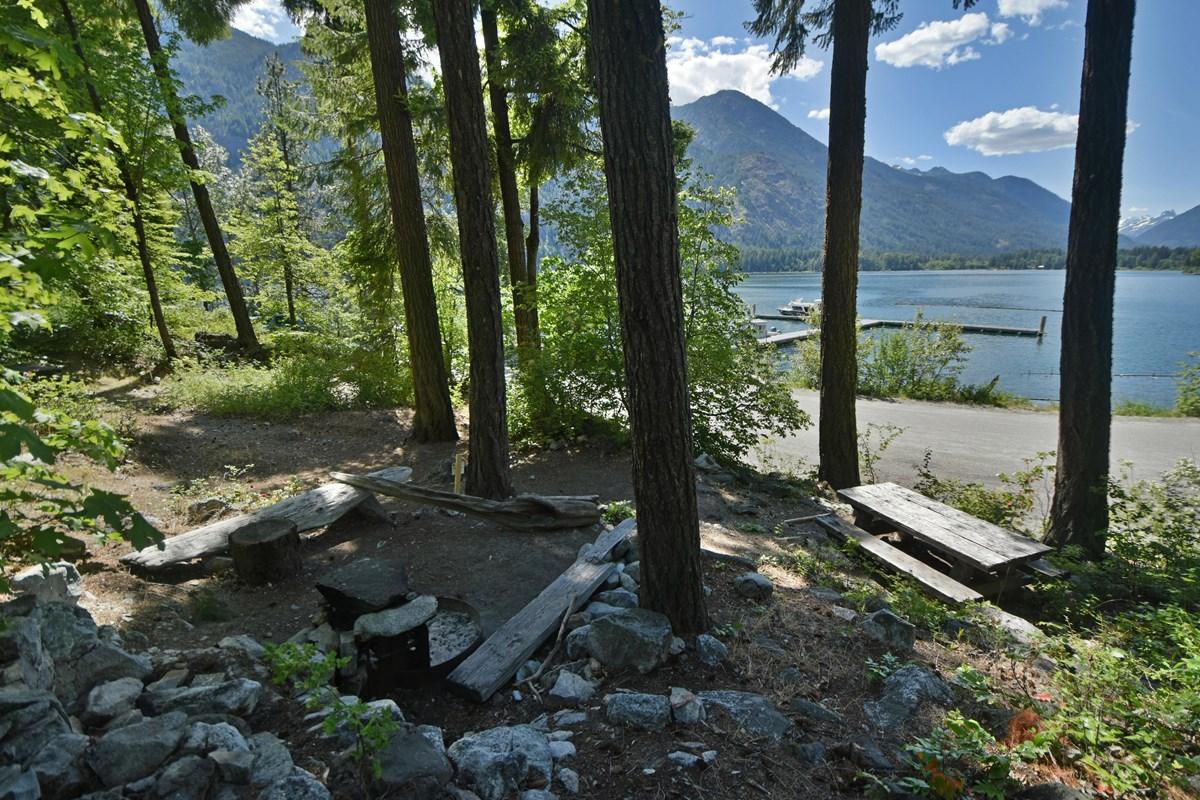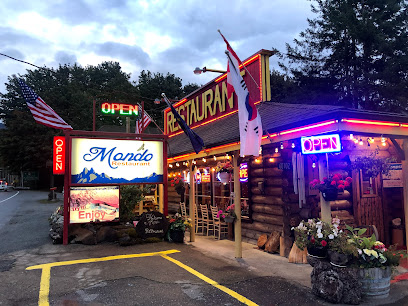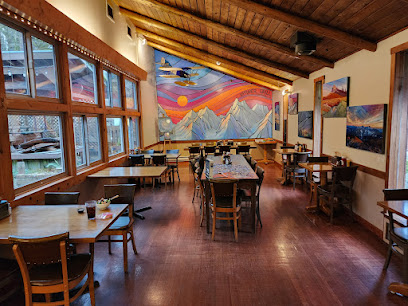
The Majestic Wilderness of North Cascades National Park
North Cascades National Park, located in Washington State, is a paradise for nature lovers and adventurers alike. Known for its rugged mountains, dense forests, and stunning alpine lakes, the park is often referred to as the 'American Alps'. Its diverse landscapes offer a haven for hikers, climbers, and photographers seeking breathtaking views and serene escapes. The park is home to over 300 glaciers, more than any other national park in the contiguous United States. These glaciers feed into pristine rivers and waterfalls that cascade through lush green valleys. The park's rich biodiversity includes a wide array of flora and fauna, from ancient Douglas firs to elusive black bears and mountain goats. Whether you are exploring the dense old-growth forests or trekking to high-altitude peaks, the natural beauty of North Cascades is bound to leave you in awe. For those interested in cultural history, the park also boasts a variety of historic sites and artifacts. The area has been inhabited by Native American tribes for thousands of years, and their influence is still evident in the park's landscape and cultural heritage. Visitors can learn about the park’s history at the North Cascades Visitor Center, which offers educational exhibits and information on local conservation efforts.
Local tips in North Cascades National Park
- Visit in late summer or early fall for the best weather and fewer crowds.
- Bring plenty of water and snacks, as amenities are limited within the park.
- Check trail conditions and weather forecasts before heading out, as conditions can change rapidly.
- Don't miss the scenic drive along North Cascades Highway for stunning viewpoints.
- Consider backcountry camping for a more immersive experience, but ensure you have the necessary permits.
- Keep an eye out for wildlife, but maintain a safe distance and respect their habitat.
The Majestic Wilderness of North Cascades National Park
North Cascades National Park, located in Washington State, is a paradise for nature lovers and adventurers alike. Known for its rugged mountains, dense forests, and stunning alpine lakes, the park is often referred to as the 'American Alps'. Its diverse landscapes offer a haven for hikers, climbers, and photographers seeking breathtaking views and serene escapes. The park is home to over 300 glaciers, more than any other national park in the contiguous United States. These glaciers feed into pristine rivers and waterfalls that cascade through lush green valleys. The park's rich biodiversity includes a wide array of flora and fauna, from ancient Douglas firs to elusive black bears and mountain goats. Whether you are exploring the dense old-growth forests or trekking to high-altitude peaks, the natural beauty of North Cascades is bound to leave you in awe. For those interested in cultural history, the park also boasts a variety of historic sites and artifacts. The area has been inhabited by Native American tribes for thousands of years, and their influence is still evident in the park's landscape and cultural heritage. Visitors can learn about the park’s history at the North Cascades Visitor Center, which offers educational exhibits and information on local conservation efforts.
When is the best time to go to North Cascades National Park?
Unmissable attractions to see
Diablo Lake Vista Point
Discover the stunning beauty of Diablo Lake Vista Point, a serene escape in Washington's North Cascades, perfect for nature lovers and photographers alike.
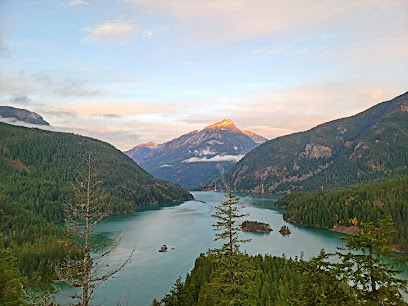
Washington Pass Observation Site
Discover the stunning vistas of the North Cascades at Washington Pass Observation Site, a scenic gem for nature lovers and hikers in Mazama, Washington.
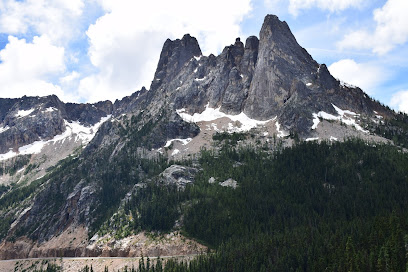
Ross Lake National Recreation Area
Explore the stunning landscapes and outdoor adventures at Ross Lake National Recreation Area in Washington, a paradise for nature lovers and adventure seekers.
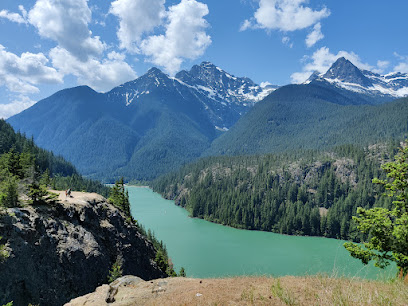
Gorge Overlook Trail
Discover the beauty of nature at Gorge Overlook Trail—an enchanting hiking area in Rockport, Washington, offering stunning views and serene landscapes.
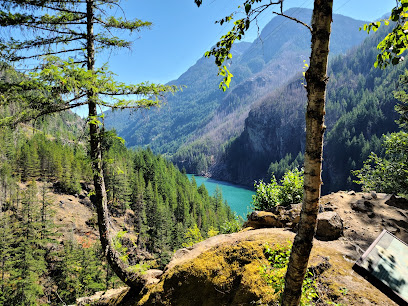
North Cascades Visitor Center
Explore the North Cascades Visitor Center—a gateway to adventure, stunning landscapes, and unforgettable experiences in Washington’s breathtaking wilderness.
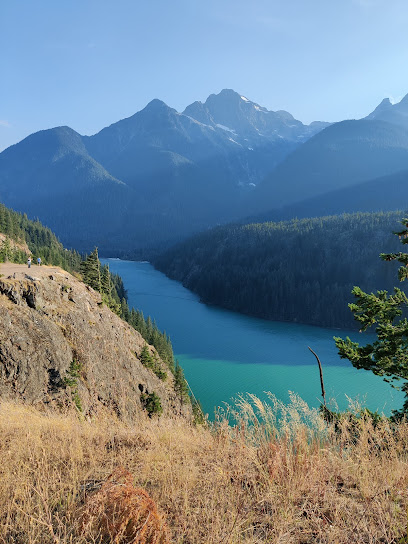
Ladder Creek Falls
Explore Ladder Creek Falls: A hidden gem in Washington's natural beauty, perfect for outdoor enthusiasts and nature lovers seeking tranquility.
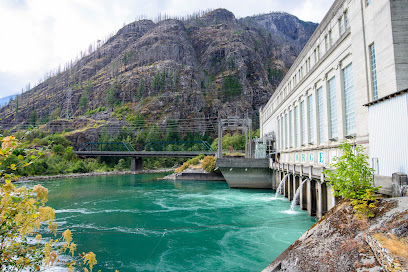
Picture Lake Viewpoint
Discover the breathtaking beauty of Picture Lake Viewpoint in Deming, WA - a perfect blend of tranquility, adventure, and stunning natural scenery.
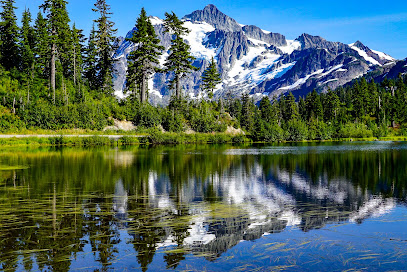
Diablo Lake Trailhead
Explore the breathtaking beauty of Diablo Lake Trailhead, a premier hiking destination in the stunning North Cascades of Washington.
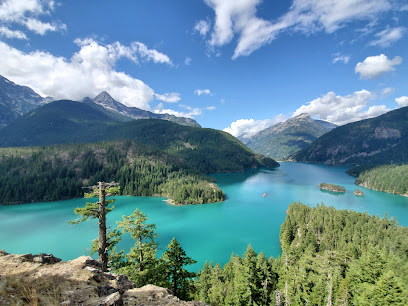
North Cascades National Park West Entrance
Discover the breathtaking landscapes and diverse wildlife of North Cascades National Park, a true natural wonder in Washington State.
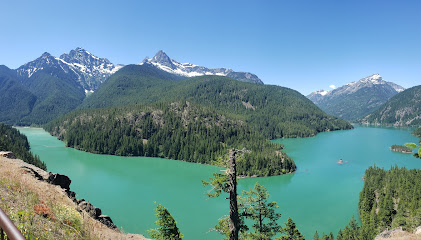
Ross Dam Trailhead
Explore the breathtaking landscapes and diverse hiking trails at Ross Dam Trailhead in the stunning North Cascades, a paradise for nature lovers.
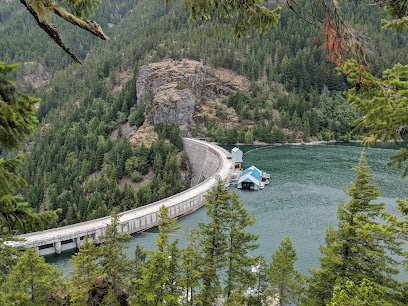
Racehorse Falls
Explore Racehorse Falls in Deming, WA - a stunning waterfall destination surrounded by lush greenery and perfect for nature lovers.
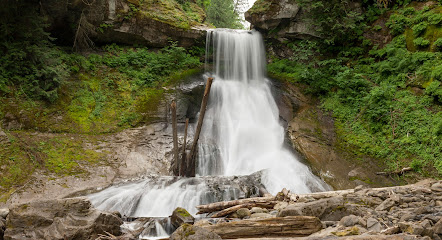
Thunder Knob Trailhead
Explore the breathtaking beauty of Thunder Knob Trailhead in Washington's North Cascades, where stunning views and diverse wildlife await outdoor enthusiasts.
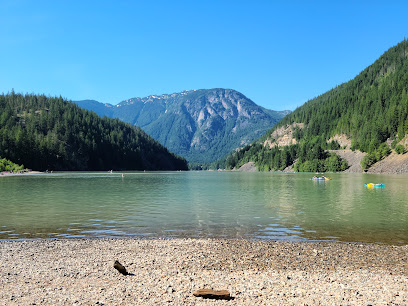
Trail of the Cedars
Discover the breathtaking beauty of the Trail of the Cedars in Rockport, WA, a serene hiking area surrounded by towering trees and stunning landscapes.
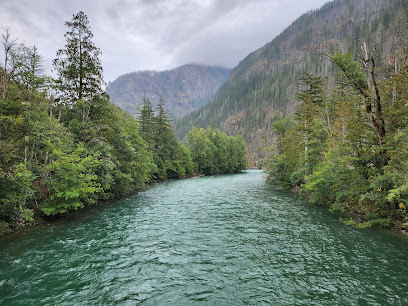
Ross Lake Overlook
Experience the stunning vistas and serene beauty of Ross Lake Overlook in Washington's North Cascades National Park.
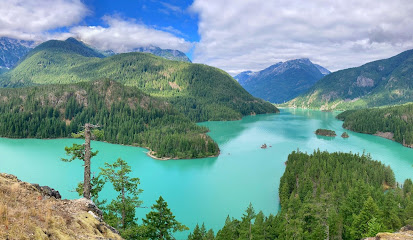
Hidden Lake Lookout
Discover the breathtaking vistas and serene beauty of Hidden Lake Lookout, a must-see scenic spot in Washington for nature lovers and adventure seekers.
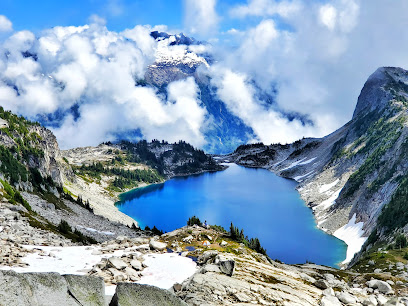
Essential places to dine
Markets, malls and hidden boutiques
Diablo Lake Vista Point
Experience breathtaking views at Diablo Lake Vista Point, a scenic gem in North Cascades National Park with stunning turquoise waters and majestic mountains.
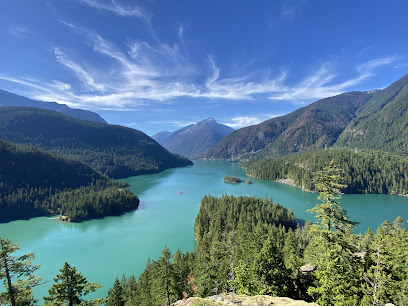
Real Canadian Superstore Gladwin Road
Discover a world of flavors at Real Canadian Superstore Gladwin Road, your go-to grocery destination in Abbotsford, BC.
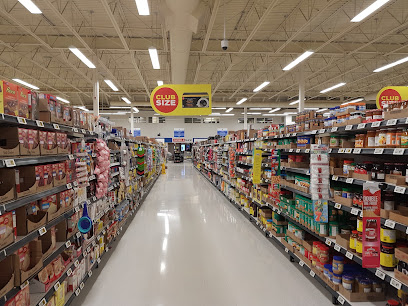
Real Canadian Superstore Luckakuck Way
Explore the Real Canadian Superstore in Chilliwack for fresh groceries, bakery delights, and more in a vibrant shopping experience.
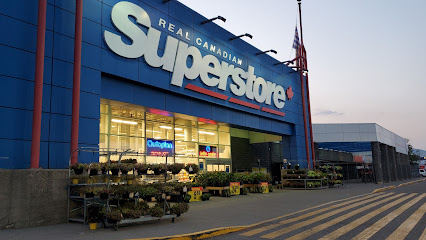
Value Village
Explore Value Village for unique second-hand treasures in Chilliwack, where sustainable shopping meets eclectic finds, from vintage clothing to used books.
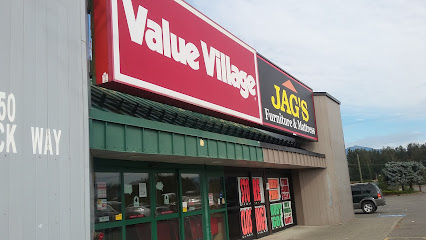
North Cascades National Park
Explore North Cascades National Park's breathtaking landscapes, diverse wildlife, and serene wilderness in Washington's Pacific Northwest.
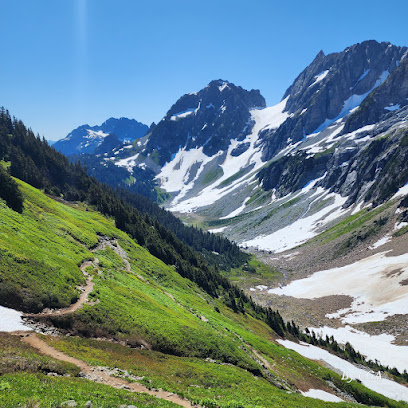
North Cascades Visitor Center
Discover the gateway to adventure at the North Cascades Visitor Center, where nature and knowledge collide in breathtaking beauty.
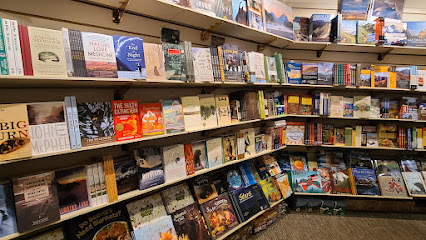
Winners & HomeSense
Explore a diverse collection of fashion and home essentials at Winners & HomeSense in Chilliwack, where style meets unbeatable prices.
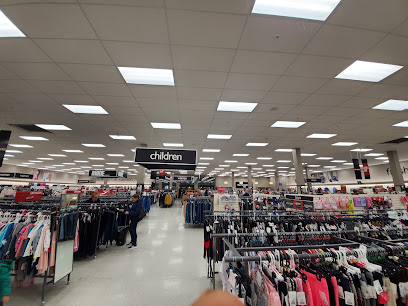
Hofstede's Country Barn
Explore Hofstede's Country Barn, a charming grocery store in Chilliwack offering fresh produce, delicious baked goods, and unique local gifts.
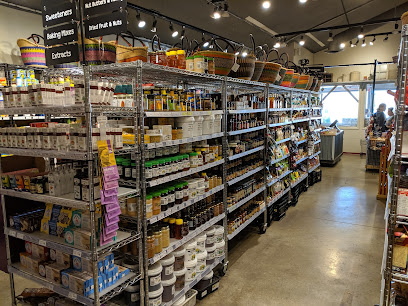
5b's Bakery & Eatery
Experience the charm of 5b's Bakery & Eatery in Concrete, WA, with its mouthwatering pastries, breakfast delights, and gluten-free options in a cozy setting.
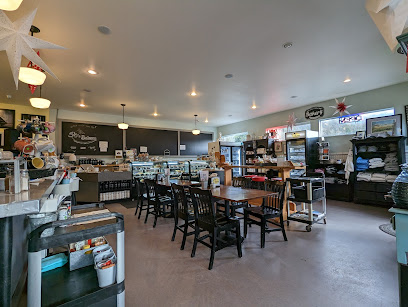
Joe's Fine Coffee
Discover the rich flavors and warm ambiance of Joe's Fine Coffee, a delightful café in Deming, WA, perfect for coffee lovers and casual visitors.
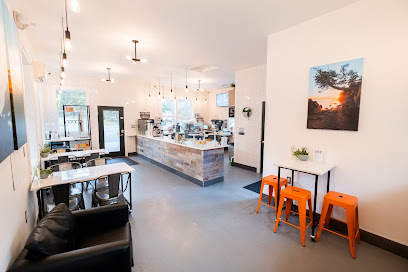
North Cascades Perks
Discover the charm of North Cascades Perks, your perfect coffee stop in the heart of Washington's stunning landscapes.
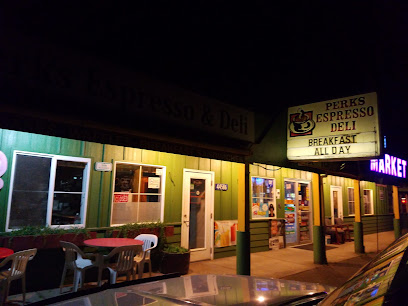
North Cascades National Park West Entrance
Explore North Cascades National Park: A breathtaking paradise of towering peaks, lush forests, and stunning glacial lakes in Washington State.
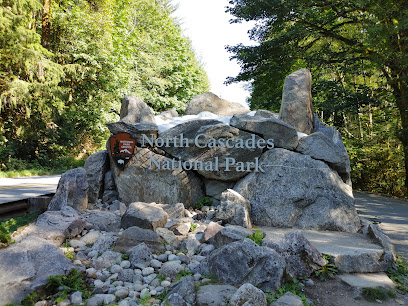
Dwayne Lane's Skagit Subaru
Discover Dwayne Lane's Skagit Subaru in Burlington for exceptional Subaru vehicles, professional services, and a comprehensive automotive experience.
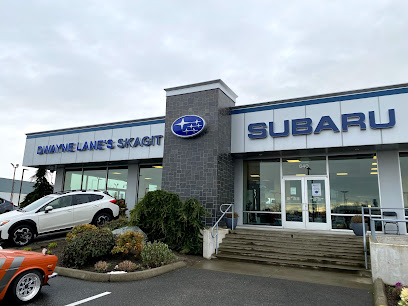
Showcase
Discover a treasure trove of unique products at Showcase, your go-to destination for home goods, beauty supplies, electronics, and toys in Abbotsford.
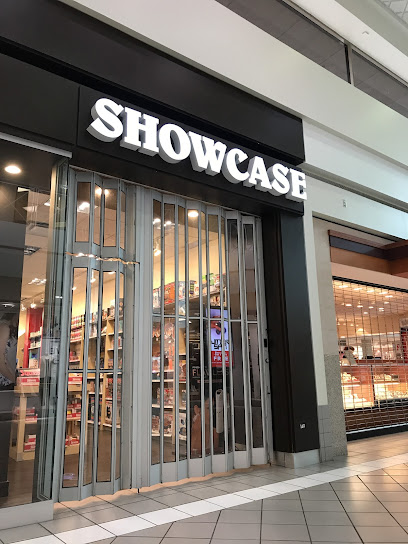
North Cascades National Park Wilderness Information Center
Discover the North Cascades National Park Wilderness Information Center, your gateway to adventure and breathtaking landscapes in Washington State.
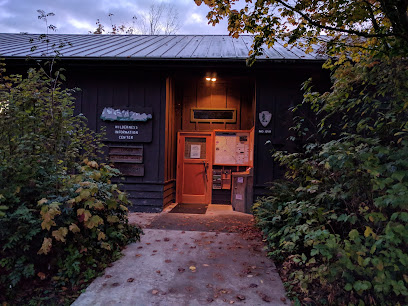
Essential bars & hidden hideouts
Diablo Lake Vista Point
Experience breathtaking views at Diablo Lake Vista Point, a scenic spot in the heart of Washington's North Cascades National Park.
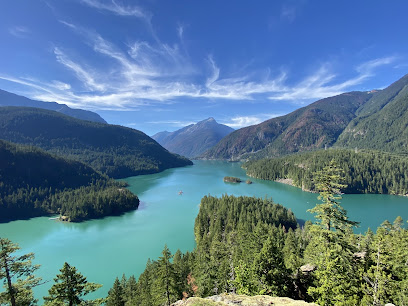
Zeke's Drive In
Discover Zeke's Drive In: A Burger Lover's Paradise in Gold Bar, WA, Offering Delicious Fast Food with Local Charm.
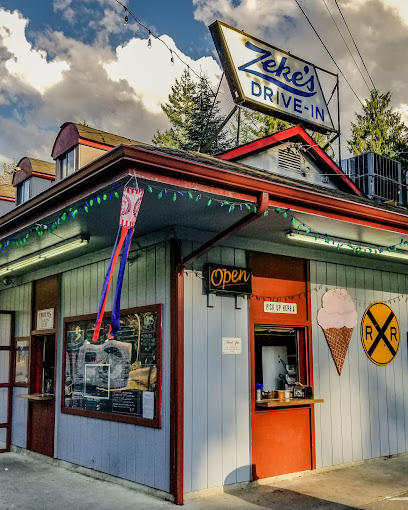
The Oxford Saloon
Discover the charm of The Oxford Saloon, a historic pub in Snohomish offering delicious grill dishes and a vibrant atmosphere for all visitors.
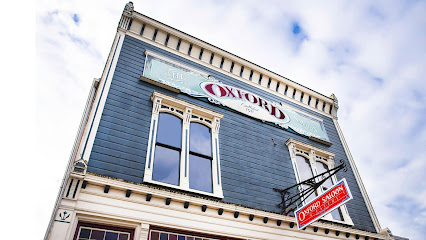
Railroad Pub & Pizza
Discover Burlington's vibrant dining scene at Railroad Pub & Pizza, where unique pizza creations and a cozy atmosphere await you.
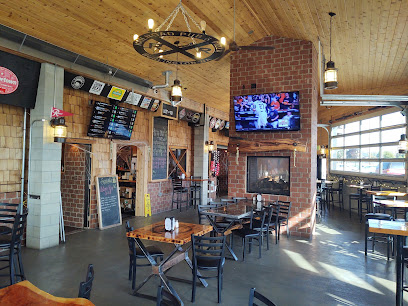
Double Barrel BBQ
Discover the smoky flavors and warm hospitality at Double Barrel BBQ in Sedro-Woolley, a top destination for barbecue lovers.
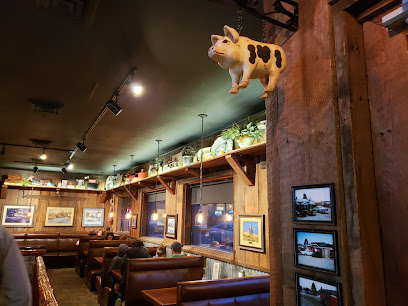
Annie's Pizza Station
Discover the authentic Italian flavors at Annie's Pizza Station, a top-rated pizza destination in Concrete, WA.
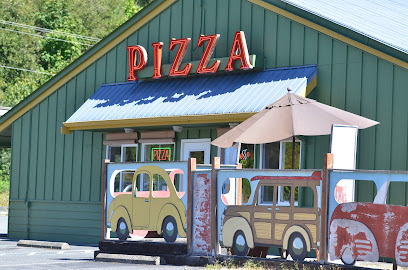
Cascade Burgers
Discover Cascade Burgers in Concrete, WA - where delicious burgers meet breathtaking scenery and warm hospitality.
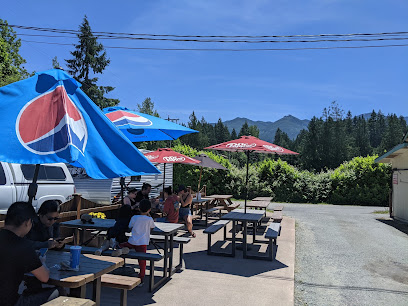
Birdsview Diner
Discover the charm of Birdsview Diner, where delicious diner classics meet local flavors and live music in beautiful Concrete, Washington.
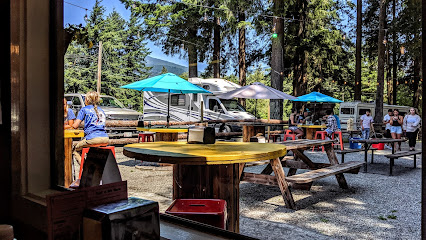
Mondo Restaurant
Discover a unique American dining experience at Mondo Restaurant in Marblemount, WA, where local flavors meet a cozy atmosphere.
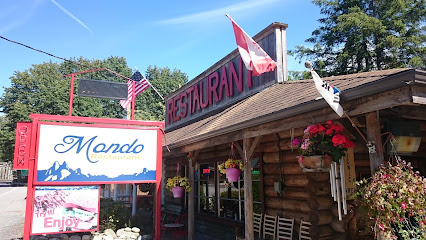
Methow Valley Ciderhouse
Experience the unique flavors of artisanal ciders and local wines at Methow Valley Ciderhouse, a charming spot in the heart of Washington's Methow Valley.
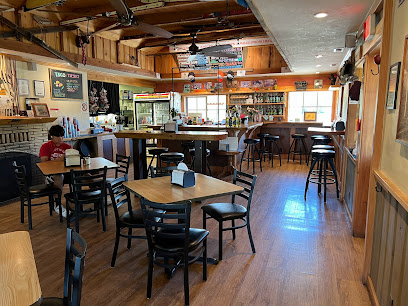
Old Schoolhouse Brewery
Discover the essence of craft brewing at Old Schoolhouse Brewery in Winthrop, where tradition meets flavor in a charming rustic setting.
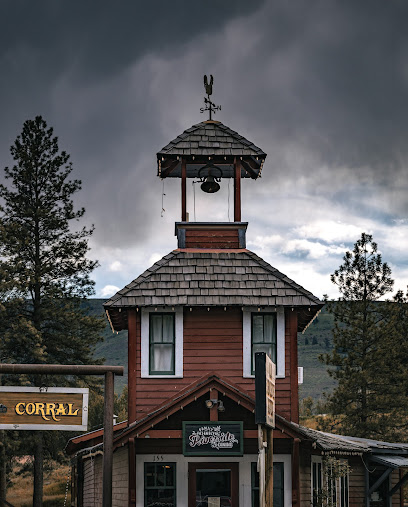
The Lonestar
Discover The Lonestar in Concrete, WA, a charming grill and breakfast spot offering delicious meals and a warm atmosphere for every visitor.
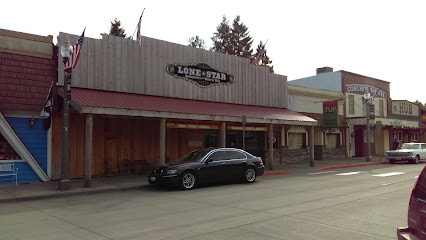
Upriver Grill & Taproom
Experience the essence of American cuisine amidst the breathtaking beauty of Marblemount, Washington at Upriver Grill & Taproom.
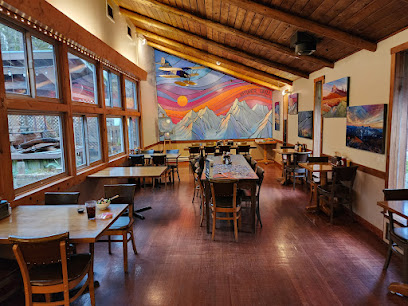
North Cascades Perks
Experience the essence of the North Cascades with delightful brews and a cozy ambiance at North Cascades Perks, the perfect coffee shop for travelers.
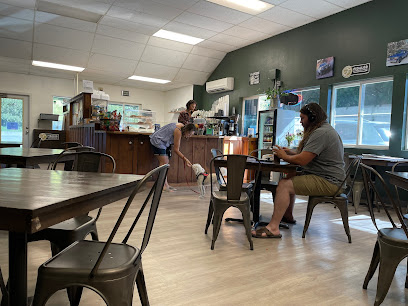
Rockport Bar & Grill
Discover Rockport Bar & Grill: A delightful dining experience featuring fresh seafood and local craft beers surrounded by stunning natural beauty.
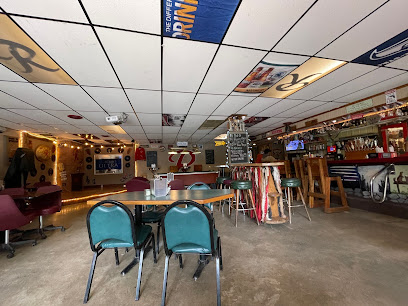
Local Phrases about North Cascades National Park
-
- HelloHəy
[hey] - GoodbyeGoodbye
[guhd-bye] - YesYes
[yes] - NoNo
[no] - Please/You're welcomePleez
[pleez] - Thank youThank you
[thank yoo] - Excuse me/SorrySəri
[suh-ree] - How are you?How are you?
[haw ar yoo] - Fine. And you?Fine. And you?
[fahyn. And yoo?] - Do you speak English?Do you speak English?
[doo yoo speek ing-glish?] - I don't understandI don't understand
[eye dohnt un-der-stand]
- HelloHəy
-
- I'd like to see the menu, pleaseI'd like to see the menu, please
[ahyd lyk tu see thee men-yoo, pleez] - I don't eat meatI don't eat meat
[eye dohnt eet meet] - Cheers!Cheers!
[cheerz] - I would like to pay, pleaseI would like to pay, please
[eye wood lyk tu pay, pleez]
- I'd like to see the menu, pleaseI'd like to see the menu, please
-
- Help!Help!
[help] - Go away!Go away!
[goh uh-way] - Call the Police!Call the Police!
[kawl thee puh-lees] - Call a doctor!Call a doctor!
[kawl uh dawk-ter] - I'm lostI'm lost
[ahym lost] - I'm illI'm ill
[ahym il]
- Help!Help!
-
- I'd like to buy...I'd like to buy...
[ahyd lyk tu by] - I'm just lookingI'm just looking
[ahym jəst look-ing] - How much is it?How much is it?
[haw much iz it] - That's too expensiveThat's too expensive
[thats too ex-pen-siv] - Can you lower the price?Can you lower the price?
[kan yoo loh-er thee prahys]
- I'd like to buy...I'd like to buy...
-
- What time is it?What time is it?
[wut tyme iz it] - It's one o'clockIt's one o'clock
[its wuhn uh-klok] - Half past (10)Half past (10)
[haf past (ten)] - MorningMorning
[mawr-ning] - AfternoonAfternoon
[af-ter-noon] - EveningEvening
[ee-ven-ing] - YesterdayYesterday
[yest-er-day] - TodayToday
[tuh-day] - TomorrowTomorrow
[tuh-mawr-oh] - 11
[wuhn] - 22
[too] - 33
[three] - 44
[for] - 55
[five] - 66
[six] - 77
[seven] - 88
[eyt] - 99
[nine] - 1010
[ten]
- What time is it?What time is it?
-
- Where's a/the...?Where's a/the...?
[wheers uh/thee] - What's the address?What's the address?
[wuts thee uh-dres] - Can you show me (on the map)?Can you show me (on the map)?
[kan yoo show mee (on thee map)] - When's the next (bus)?When's the next (bus)?
[wenz thee nekst (bus)] - A ticket (to ....)A ticket (to ....)
[uh tik-it (to)]
- Where's a/the...?Where's a/the...?
History of North Cascades National Park
-
The North Cascades region has been inhabited for thousands of years by various Indigenous tribes, including the Nooksack, Upper Skagit, and Sauk-Suiattle peoples. These tribes utilized the rich resources of the area, engaging in fishing, hunting, and gathering. The North Cascades were also a significant cultural and spiritual landscape for these Indigenous communities.
-
The first recorded European exploration of the North Cascades began in the late 18th century. Early fur traders and explorers, such as Alexander Ross and David Thompson, ventured into the region in search of trade routes and resources. Their explorations helped map the area and opened it up for subsequent settlers and prospectors.
-
The late 19th and early 20th centuries saw a mining boom in the North Cascades. Prospectors flocked to the region in search of precious metals, particularly gold and silver. Several mining towns, including Monte Cristo, sprang up almost overnight. While many of these towns have since become ghost towns, the remnants of this era can still be seen in the park.
-
The early 20th century saw growing awareness of the need to preserve the natural beauty of the North Cascades. Key figures such as Harvey Manning and the North Cascades Conservation Council played pivotal roles in advocating for the protection of the region. Their efforts culminated in the establishment of the North Cascades National Park on October 2, 1968.
-
On October 2, 1968, President Lyndon B. Johnson signed the North Cascades Act, officially establishing the North Cascades National Park. The park spans over 500,000 acres and is renowned for its rugged mountain terrain, diverse ecosystems, and stunning scenic vistas. It serves as a protected area for wildlife and a destination for outdoor enthusiasts.
-
The North Cascades National Park holds immense cultural significance for both Indigenous communities and modern visitors. For Indigenous tribes, the park's landscapes are intertwined with their history, traditions, and spiritual beliefs. For contemporary visitors, the park offers a chance to connect with nature, explore historical sites, and appreciate the cultural heritage of the region.
North Cascades National Park Essentials
-
North Cascades National Park is located in the state of Washington, USA. The nearest major airport is Seattle-Tacoma International Airport (SEA), located approximately 120 miles southwest of the park. From Seattle, you can rent a car and drive to the park, which takes about 2.5 to 3 hours via I-5 N and WA-20 E. Alternatively, you can take a bus to Mount Vernon or Burlington and then rent a car or arrange for a shuttle to the park.
-
Having your own vehicle is the most convenient way to explore North Cascades National Park, as public transportation options are limited. There are several car rental agencies available at Seattle-Tacoma International Airport. For those who prefer not to drive, some private companies offer guided tours and shuttle services to and within the park. The park's roads are well-maintained, but be prepared for winding mountain roads and occasional closures due to weather conditions.
-
The official currency in the United States is the US Dollar (USD). Credit and debit cards are widely accepted, including in most establishments within and around North Cascades National Park. However, it is advisable to carry some cash, especially for smaller vendors and in more remote areas of the park. ATMs are available in nearby towns such as Marblemount and Winthrop.
-
North Cascades National Park is generally a safe destination for tourists. However, standard precautions should be taken. Avoid leaving valuables in your car, especially in visible areas. While the park itself has low crime rates, exercise caution in unfamiliar areas, particularly at night. Be aware of wildlife and follow park guidelines to avoid encounters with bears and other animals.
-
In case of emergency, dial 911 for immediate assistance. The park has several ranger stations where you can seek help. It is advisable to carry a first aid kit and be aware of your surroundings, as cell phone reception can be limited in remote areas. The nearest hospitals are located in towns like Sedro-Woolley and Concrete, which are outside the park.
-
Fashion: Do wear comfortable, weather-appropriate clothing and sturdy hiking boots. Don't wear high heels or flip-flops on hiking trails. Religion: The park is a secular area, but do respect any cultural or historical sites you may encounter. Public Transport: Do plan your route if using any shuttle services, as they are limited. Don't rely solely on public transport for your entire visit. Greetings: Do greet fellow hikers and park staff with a friendly 'hello'. Eating & Drinking: Do bring your own snacks and water, especially for long hikes. Don't leave trash; always use designated bins or pack out your waste.
-
To experience North Cascades National Park like a local, visit during the shoulder seasons of spring and fall when the park is less crowded and the scenery is particularly stunning. Engage with park rangers at visitor centers for insider tips on the best trails and viewpoints. Don't miss the opportunity to hike to Cascade Pass or take a scenic drive along the North Cascades Highway (WA-20). Additionally, consider participating in ranger-led programs for a deeper understanding of the park's natural and cultural history.
Nearby Cities to North Cascades National Park
-
Things To Do in Marysville
-
Things To Do in Everett
-
Things To Do in Lynnwood
-
Things To Do in Redmond
-
Things To Do in Kirkland
-
Things To Do in Bellevue
-
Things To Do in Seattle
-
Things To Do in Bremerton
-
Things To Do in Renton
-
Things To Do in Kent
-
Things To Do in Auburn
-
Things To Do in Federal Way
-
Things To Do in Tacoma
-
Things To Do in Yakima
-
Things To Do in Spokane








